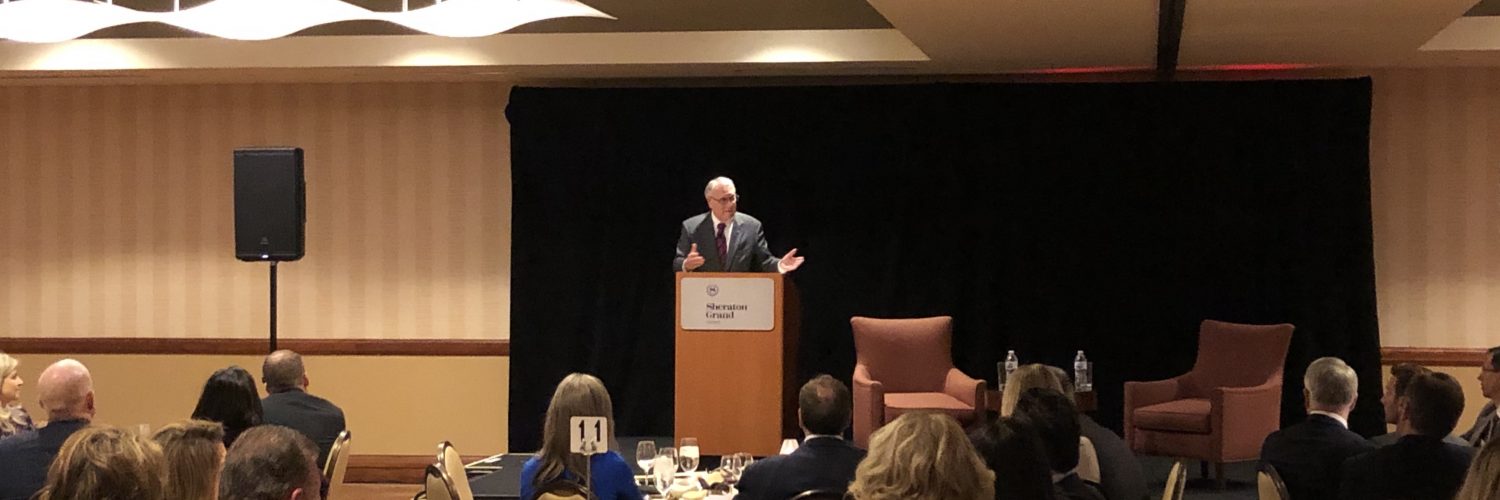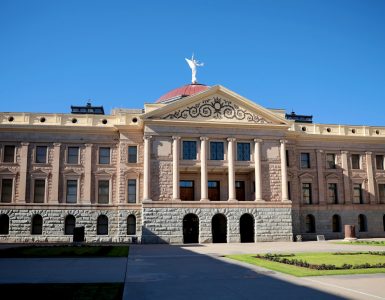Arizona State University’s Sandra Day O’Connor College of Law held its third annual Lecture on American Law, Trade and Prosperity where former U.S. Senator Jon Kyl (R-AZ) gave an insider’s scoop on the Supreme Court justice confirmation process.
Kyl, who was originally elected to the Senate in 1994, shared how Washington D.C., the Senate, and the confirmation process have changed over the past few decades.
“Never in the process have we seen a more contentious debate over nominees, and you don’t have to be an insider to see that,” Kyl said in reference to the recent hearing for Judge Brett Kavanaugh.
Prior to being appointed to the Senate in 2018, Kyl guided now-Supreme Court Justice Kavanaugh through the Senate’s ritualistic confirmation process by acting as his “sherpa.” He said he learned a “great deal about the law” from sitting in meetings with Kavanaugh and Senators.
According to Kyl, what brings incivility to the confirmation process is the use of cloture votes – a procedure to end a debate where the Senate must have a 60/40 vote rather than a 51/49 vote.
“During the Clarence Thomas confirmation debate on the floor of the Senate, both Senator [Ted] Kennedy and Senator [Patrick] Leahy – both senior members of the Judiciary Committee – made the point that they didn’t want to see Clarence Thomas confirmed and they knew they could stop him if they required a cloture vote… but they said that would be wrong, it’s never been done in history. That’s how important the notion of a pure majority [of] 51 votes was,” he said.
In the first two years of Presidents Jimmy Carter, Ronald Reagan, and George H.W. Bush’s terms there was not one single cloture vote, but under President Donald Trump there have been 128.
Kyl originally served in the Senate between 1995 and 2013 and returned in 2018 when he was appointed to the late Senator John McCain’s seat by Governor Doug Ducey (R-AZ).
“It [was] like parachuting into a war zone,” Kyl said. “It was a very distressing time in Washington and then you saw the hearing and I don’t think anyone [handled] themselves very well in that whole process.”
So, how does the Senate restore civility?
According to Kyl, first, they need to go back to the basics – the Constitution.
“I don’t think the framers ever had in mind that it was going to be this uncivil. It appeared to Alexander Hamilton in Federalist 76 that a nominee should be rejected only for special and strong reasons,” he said. “The Kavanaugh hearing is done, so, the real question is: what about the next one? Is there a way the Senate can go back to the brink here? And my simple, and unfortunate answer, is [no].”
He said that to help restore civility to the process, the Supreme Court needs to hold less power in political policy.
“As long as major public policy decisions are going to be made by the courts, the nominees to the court are going to be big deals and the confirmation process is going to be a really big deal and politicians and outside groups and everybody else is going to fight about it,” Kyl added.
Increasing the number of judges on the court or implementing term limits/a mandatory retirement age are ways Kyl said could address this growing issue.
“How do you deal with the civility?” Kyl said. “Do what your mother taught you, be nice.”
















Add comment